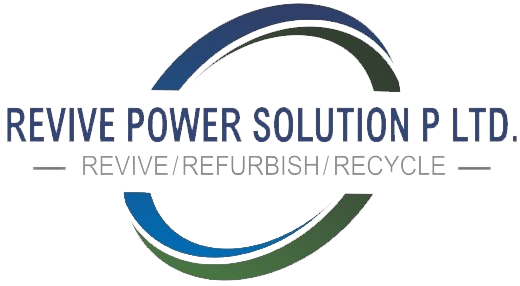LEAD-ACID BATTERIES REGENERATION
Our management's main focus is a Lead-Acid Batteries Regeneration / Restoration. We are known for our robustness and performance that exceed those of existing models on the market today. More powerful, we offer deeper processing for maximum productivity and a better return on investment. We are providing a Lead-Acid batteries regeneration services.


BATTERY REGENERATION
Battery regeneration is the process of restoring a battery's performance by reversing or mitigating the factors that cause its degradation. These factors often include loss of capacity, electrode deterioration, and internal resistance buildup, which can result from cycling, overcharging, and aging. Regeneration technologies aim to rejuvenate batteries, improving their efficiency, capacity, and overall lifespan.
- Chemical Treatment: Certain chemical treatments dissolve unwanted deposits from battery electrodes, improving ion flow and performance.
- Electrochemical Reconditioning: This method involves applying controlled electrical currents or pulses to the battery to reverse electrode degradation and redistribute active materials, restoring the battery's capacity and efficiency.
- Thermal Rejuvenation:Optimizing a battery's internal structure, alleviating stress-induced damage, and improving its electrochemical properties can be achieved through heating or cooling processes.
- Mechanical Intervention:Ultrasonic cleaning and mechanical agitation can enhance battery performance by removing contaminants and improving internal connectivity.
REGENERATION TECHNOLOGY (OUR SERVICE COVER VARIOUS INDUSTRIES & SECTOR)
Automotive
Electric vehicle (EV) batteries can be made to last longer and perform better, reducing the need for frequent replacements and minimizing environmental impact.
Renewable Energy Storage
Optimizing the contribution of solar, wind, and other renewable energy systems to grid stability and reliability by enhancing the efficiency and longevity of their batteries.
Telecommunications
Ensuring uninterrupted telecom service during power outages by improving backup power systems.
Industrial Equipment
Maximizing battery uptime and efficiency for industrial equipment to reduce downtime and maintenance costs.
ADVANTAGES
1. Cost-Effectiveness
Battery regeneration can reduce the need for frequent battery replacements, saving individuals and businesses money by rejuvenating existing batteries rather than purchasing new ones.
2. Environmental Sustainability
Extending the lifespan of batteries by regenerating them can help reduce the environmental impact associated with battery manufacturing and disposal. This approach not only reduces the amount of battery waste, but also saves the resources that would have been consumed in producing new batteries. By promoting energy storage sustainability, it contributes to a more eco-friendly future.
3. Improved Performance
Regenerated batteries often exhibit improved performance metrics, such as increased capacity, enhanced energy density, and reduced internal resistance. This leads to better efficiency and reliability in various applications, ranging from electric vehicles to renewable energy storage systems.
4. Energy Efficiency
Regeneration technology promotes energy efficiency by optimizing battery performance, resulting in reduced energy losses during operation and more effective utilization of stored energy.
5. Extended Lifespan
Battery regeneration is a process that can help extend the lifespan of batteries. By using this process, batteries can remain in service for longer periods of time before requiring replacement. This is particularly useful in applications where reliability and longevity are key factors, as it helps to increase the economic and practical utility of batteries.
BATTERY TYPES
Low Nominal Capacity Batteries
A low nominal capacity battery refers to a battery that has a relatively small amount of energy storage capacity compared to other batteries of the same type or category. In simpler terms, it means that the battery can hold less energy and may need to be recharged or replaced more frequently than higher capacity batteries.
Very Large Batteries
Higher capacity batteries are specifically designed to store and deliver a larger amount of energy compared to other standard or lower capacity batteries of the same type or category.Use advanced technology to increase their energy storage capacity.that require longer runtime, greater power output, or increased energy storage, such as electric vehicles.
